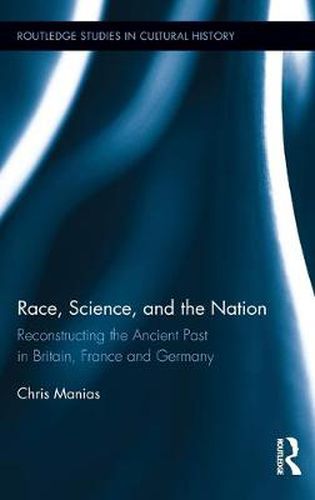Readings Newsletter
Become a Readings Member to make your shopping experience even easier.
Sign in or sign up for free!
You’re not far away from qualifying for FREE standard shipping within Australia
You’ve qualified for FREE standard shipping within Australia
The cart is loading…






Across the nineteenth century, scholars in Britain, France and the German lands sought to understand their earliest ancestors: the Germanic and Celtic tribes known from classical antiquity, and the newly discovered peoples of prehistory. New fields - philology, archeology and anthropology - interacted, breaking down languages, unearthing artifacts, measuring skulls and recording the customs of savage analogues. This was a decidedly national process: disciplines institutionalized on national levels, and their findings seen to have deep implications for the origins of the nation and its racial composition. However, this operated within broader currents. The wide spread of material and novelty of the methods meant that these approaches formed connections across Europe and beyond, even while national rivalries threatened to tear these networks apart.
Race, Science and the Nation follows this tension, offering a simultaneously comparative, cross-national and multi-disciplinary history of the scholarly reconstruction of European prehistory. As well as showing how interaction between disciplines was key to their formation, it makes arguments of keen relevance to studies of racial thought and nationalism. It shows these researches often worked against attempts to present the chaotic multi-layered ancient eras as times of mythic origin. Instead, they argued that the modern nations of Europe were not only diverse, but were products of long processes of social development and racial fusion. This book therefore brings to light a formerly unstudied motif of nineteenth-century national consciousness, showing how intellectuals in the era of nation-building themselves drove an idea of their nations being constructed from a useable past.
$9.00 standard shipping within Australia
FREE standard shipping within Australia for orders over $100.00
Express & International shipping calculated at checkout
Across the nineteenth century, scholars in Britain, France and the German lands sought to understand their earliest ancestors: the Germanic and Celtic tribes known from classical antiquity, and the newly discovered peoples of prehistory. New fields - philology, archeology and anthropology - interacted, breaking down languages, unearthing artifacts, measuring skulls and recording the customs of savage analogues. This was a decidedly national process: disciplines institutionalized on national levels, and their findings seen to have deep implications for the origins of the nation and its racial composition. However, this operated within broader currents. The wide spread of material and novelty of the methods meant that these approaches formed connections across Europe and beyond, even while national rivalries threatened to tear these networks apart.
Race, Science and the Nation follows this tension, offering a simultaneously comparative, cross-national and multi-disciplinary history of the scholarly reconstruction of European prehistory. As well as showing how interaction between disciplines was key to their formation, it makes arguments of keen relevance to studies of racial thought and nationalism. It shows these researches often worked against attempts to present the chaotic multi-layered ancient eras as times of mythic origin. Instead, they argued that the modern nations of Europe were not only diverse, but were products of long processes of social development and racial fusion. This book therefore brings to light a formerly unstudied motif of nineteenth-century national consciousness, showing how intellectuals in the era of nation-building themselves drove an idea of their nations being constructed from a useable past.